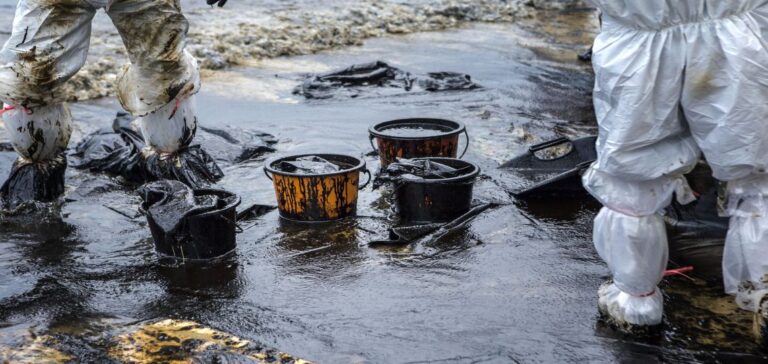U.S. oil giant Exxon Mobil says it will face huge “revenue losses” if Guyana’s courts do not suspend a ruling requiring it to provide “unlimited” insurance for cleanup in case of an oil spill or leak.
On May 3, the High Court, seized by environmental advocates, ruled that the consortium led by Exxon must provide “unlimited and uncapped insurance for all costs associated” with the “cleanup and restoration of all damage caused” by the possible “spill of any contaminants resulting from its activities” off Guyana. Exxon has until the end of the month to produce these guarantees or risk having to stop production.
At a press conference on Friday, Exxon executives announced that they had appealed the decision and estimated that the loss of revenue would be $350 million per month if production of 155,000 barrels per day was suspended. Exxon, which leads a consortium composed of China National Offshore Oil Corporation(CNOOC) and the American Hess, explains that the suspension of production is also costly because it is necessary to maintain a flow in the wells.
“We have filed an application to suspend this order because we believe that if we are not able to obtain, as ordered, these unlimited guarantees, the license will obviously be suspended in accordance with this order and we will then have to stop production, which will have significant financial consequences for all investors, but also for the country in terms of lost revenue,” said Exxon Mobil Guyana president Alistair Routledge. He admitted that he was not sure if he could provide such guarantees: “I am hopeful, but I don’t know. Honestly, we don’t control the situation.
With a population of some 800,000, Guyana, located in the northeast of South America, has the world’s largest per capita reserves. Experts estimate that the Guyana-Suriname Basin contains about 15 billion barrels of oil reserves associated with significant gas deposits.






















